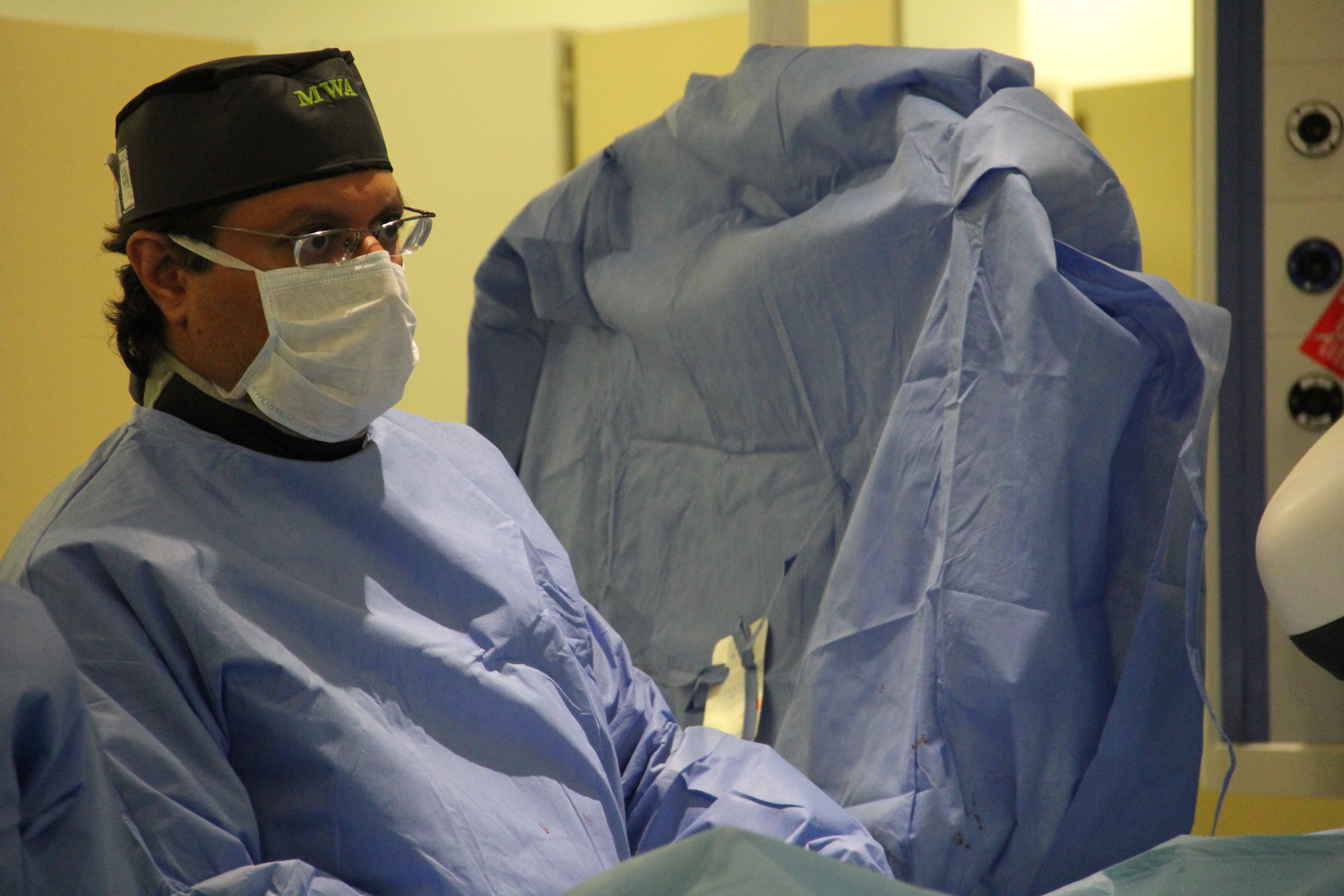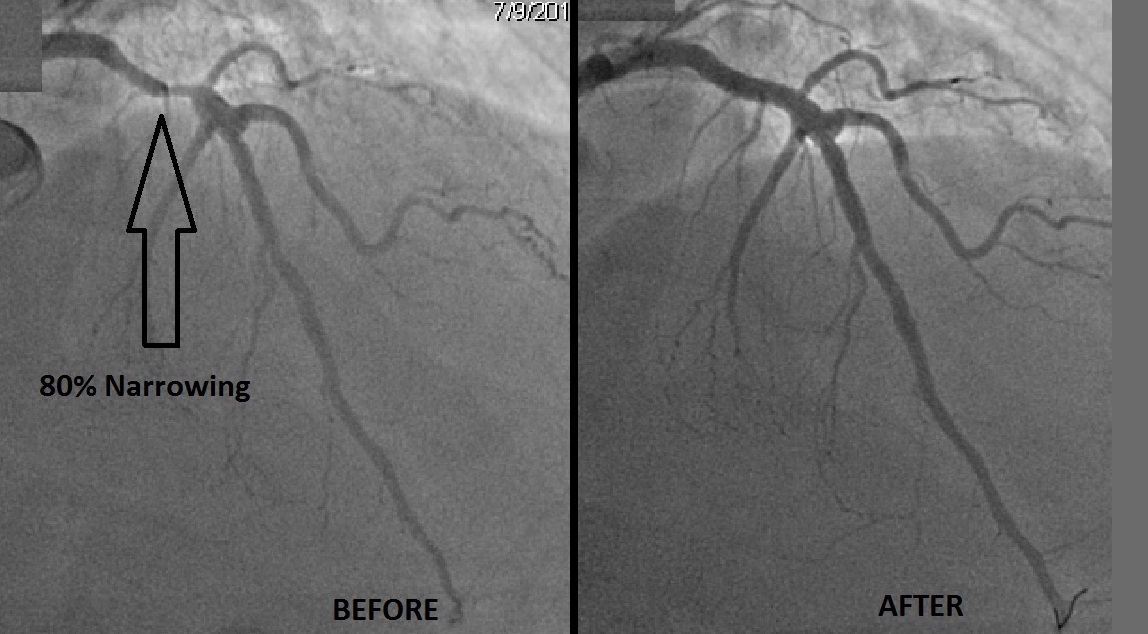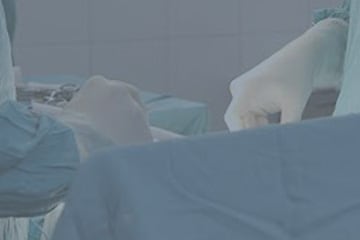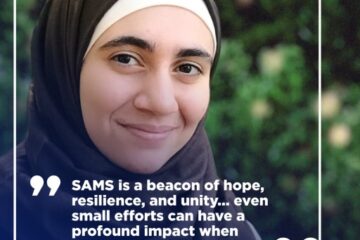July 24, 2017
Cardiologist Dr. Waseem Akhter joined the SAMS Medical Mission to Jordan in July of 2017. Throughout the medical mission, he and his colleagues performed 63 cardiac catheterizations. On the first day of the medical mission, he met a patient whose experience he shared with us.
I am called to the bedside of a patient who is being prepped for a procedure on the heart. I am currently in Amman, Jordan with a medical team organized by the Syrian American Medical Society (SAMS) that is tasked to treat sick refugees in the country. The individual in front of me is a portly middle aged man lying in bed, probably in his sixties, who is accompanied by a doting wife and an attentive son. His tanned complexion and salt and pepper hair is a reminder of the eventful life he has lived. I imagine that not too long ago he was probably the patriarch of his family, providing a decent living for his children and standing proud in his community. However, today his bearing is of a beaten man, and he appears afraid and unsure. His concerns seem more for his family rather than for his own health. This is my first day on the mission, and I have already witnessed similar scenes playing out with other families all day long.
This patient had had a heart attack more than a decade ago. However, he recovered well and at the time of the onset of the Syrian crisis he was living in Dara, the owner of a cheese shop based out of his home. The proceeds from his business allowed him to support his wife and 12 children. Then, the war happened. In quick succession, his son was killed, his wife died, and he lost his home and business. Once a self-made man with a stable life, he now fled to Amman with his remaining family with some meager belongings with no prospects of earning a livelihood. In the span of one to two years, he depleted his savings and was left essentially penniless. He quickly became one of the thousands of unregistered refugees in Jordan who live in limbo, unable to become productive members of Jordanian society, and not able to return to Syria for fear of persecution and death.
“There are fathers, mothers, husbands, and wives who are deprived of their humanity and dignity because their illnesses are not treated.”
His second wife (whom he married 3 years ago) tells me that the patient experiences chest pain daily. He sometimes chooses not to buy his medications, so that his family can have money for food. He was recently able to have a diagnostic heart procedure that revealed that he has multiple blockages in the vessels of the heart. He would need either surgery or a heart catheterization procedure to alleviate his pain and to prevent future damage to the heart. Due to the exorbitant cost of these treatments, that he could not afford, he was unable to get relief from his symptoms for the past 6 months. Then as luck would have it, the family found out about our medical mission from another NGO. This is how he happened to come to the hospital today and see me.
Our heart team reviews his prior studies, and a decision is made to intervene the same day. He receives a cardiac stent through a catheter, and the procedure is a success. The next day as I round on him, I cannot help but feel ashamed as I acknowledge that there are people like him suffering in the refugee camps and elsewhere that are walking around with debilitating chest pain or shortness of breath. There are fathers, mothers, husbands, and wives who are deprived of their humanity and dignity because their illnesses are not treated. They bear their pain silently. For these families, they endure debt-ridden lives with no hope for an easy solution. This particular individual suffered for months and years before he could get the treatment he deserved. For every single patient I treat, there are likely hundreds that are not helped. Recognizing this reality overwhelms me.
 Can I claim that there is solace in the fact that our mission did help this one man? However small this contribution, he will go back to his family with some of his dignity returned. Can these little happenings affect bigger change? I don’t have the answers, but I cannot let hope die. The heart team might be treating just one patient at a time, but we will continue on with this mission. This is what I can do, and this is what I can control. My promise to this patient and to others like him is that we have not forgotten them, and we will continue to return to this part of the world over and over again until the conflict finally ends, and they get to go back home.
Can I claim that there is solace in the fact that our mission did help this one man? However small this contribution, he will go back to his family with some of his dignity returned. Can these little happenings affect bigger change? I don’t have the answers, but I cannot let hope die. The heart team might be treating just one patient at a time, but we will continue on with this mission. This is what I can do, and this is what I can control. My promise to this patient and to others like him is that we have not forgotten them, and we will continue to return to this part of the world over and over again until the conflict finally ends, and they get to go back home.
– Dr. Waseem Akhtar






